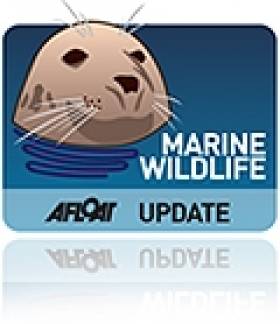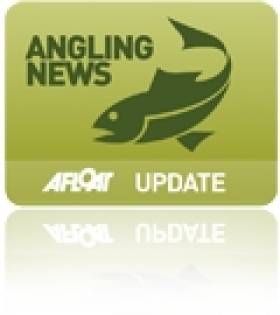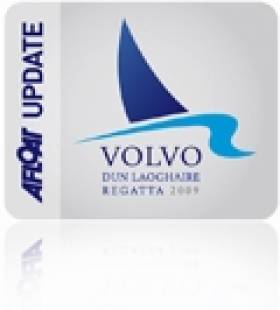Displaying items by tag: fees
Irish Yacht Clubs Lowering Fees To Attract New Members
#Sailing - Irish yacht clubs are "trying to ditch their elitist image" and cutting prices to attract a more diverse membership, according to The Sunday Times.
Members' fees across Ireland's top yacht clubs have been lowered by an average 15%, says the paper, while some clubs such as Skerries Sailing Club are experimenting with eliminating such fees altogether.
Even the world's oldest club, the Royal Cork Yacht Club, is offering an introductory rate of €180 for 2013.
While the attempt to broaden the horizons of club membership is fitting with the ISA's vision of a brighter future for Irish sailing after last year's "breakthrough year", the cutting of fees points to a different side to the story - one that puts last year's EGM on the ISA's funding structure and suggestions to radically rethink how Irish sailing spends its resources into perspective.
The Sunday Times has more on this story HERE.
New Season of Summer Whale Watching Courses on Cape Clear
#MARINE WILDLIFE - The Irish Whale and Dolphin Group (IWDG) has announced another series of its popular whale watching courses on Cape Clear in West Cork this summer.
The courses cater for adults keen to learn more about whales and dolphins in Irish waters and how to observe, record and identify them. They will feature a mixture of workshops and field trips, including cliff and boat-based whale watches.
Three weekend courses will take place on 25-27 May, 20-22 July and 7-9 September, led by IWDG sightings co-ordinator Pádraig Whooley. All are open to IWDG members and non-members alike, but places are limited to 20 places each weekend on a first-come-first-served basis.
Admission is €70 for IWDG members (€90 for non-members), with a non-refundable deposit of €25 required. Please note that this fee does not cover transport to Cape Clear, food or accomodation (which is limited in high summer) or any boat trips. As the itinerary will be weather-dependant, some flexibility will be required.
More information on the weekends and booking details are available at the IWDG website HERE.
In other IWDG news, the group has secured another grant from the Island Foundation to continue its humpback whale research in Cape Verde this spring and summer.
A shore-based team will be stationed in Boa Vista in an area that is "possibly the most important site for breeding humbacks in the entire northeast Atlantic".
Freeze on NI Fishing Licence Fees
Northern Ireland's sports minister has announced that there will be no increase in fishing licence fees for the 2012 angling seasons.
Carál Ní Chuilín said that "In light of the current economic climate, I have decided to keep the salmon and inland fishing licence fees at 2011 levels."
It marks the third year in a row that there has been no annual increase in fees for fishing licences.
The Minister added: "I hope this will continue to ease the financial burden on those involved in the commercial fishing sectors and encourage others to enjoy recreational fishing.”
The only changes for next year will be on fishing permits for the Public Angling Estate, which are subject to an inflationary rise of 4.8%.
The NI Department of Culture, Arts and Leisure says it is encouraging all fishermen and women to ensure that they have a rod licence and the correct permit to fish.
Those caught without the necessary documents will be reported with a view to prosecution, it says.
Fishing licences and permits are available to purchase online at www.nidirect.gov.uk/angling
Irish Sea Events Offer Entry Discounts
"The way this works is that the Clyde Cruising Club are offering a 25% rebate for boats from the 4 Dun Laoghaire Clubs (DMYC, NYC, RIYC, RStGYC) that enter the Brewin Dolphin Scottish series before the expiration of the early bird discount period which expires on April 22nd explained Dun Laoghaire event secretary, Ciara Dowling.
As a reciprocal arrangement the committee of the Volvo Dun Laoghaire Regatta are offering a discount of 50% from the full entry fee to all boats that enter both regattas. To avail of this, boats must register for the early bird entry fee in the Volvo Dun Laoghaire Regatta prior to 2 May 2011. Note the 50% discount will be applied to the full entry fee rate and not the early bird rate.
To avail of this arrangement for the Scottish Series contact the Brewin Dolphin Scottish Series office for details, [email protected] 0044141 221 2774.
To avail of this arrangement for the Volvo Dun Laoghaire regatta visit the event website at www.dlregatta.org or email [email protected]
The Scottish Series takes place from 27–30 May and the Dun Laoghaire regatta from July 7th–10th 2011.
In a further boost for Dun Laoghaire sailors heading north the feeder race from Bangor to Tarbert has been re-instated.
Troon and Largs Marinas are offering competitors berthing rate discounts around Scottish Series.
Competitors from Scotland coming to Dun Laoghaire are reminded that the entry fee to the regatta includes free berthing for the duration of the event.
The official Notice of Race and Online Entry are now available at www.dlregatta.org
SB3 Sailors Cry Foul at Dun Laoghaire Parking Fees
Dissatisfaction is growing among SB3 sailors regarding the cost of parking and membership at Dun Laoghaire's top yacht clubs.
In correspondence seen by Afloat.ie, one leading sailor said that clubs "need to carefully consider their pricing policies or otherwise we are going to experience a more widespread abandonment of club sailing of SB3s".
Parking and racing fees that can top more than €2,000 per year are no longer "value for money", it is claimed, and have been blamed for membership drains as well as an increase in boat sales.
Yacht club parking fees cover the mooring and security of boats on the club's property.
Unequal treatment of boat classes has also been highlighed as an issue. One sailor said: "It strikes me as being ludicrous that we pay three times what a Flying Fifteen pays to take up not much more space."
Membership fees at Irish yacht clubs were the topic of much debate on the Afloat.ie forums last year and morte on this story HERE.
Click HERE to register and have your own say.
A leading bay sailor makes the following comment. "This is a very slanted article ignoring the fact that the SB3' s in the Royal Irish for example are dry-sailed so their costs includes craneage in and out for all their racing days. Also their fees for DBSC includes dedicated SB3 racing on Sundays. If the SB3s want to moan, let them put out the whole picture and not be selective. We consider it good value, not a rip-off. The clubs have to survive and are not out to reef sailors".

































































